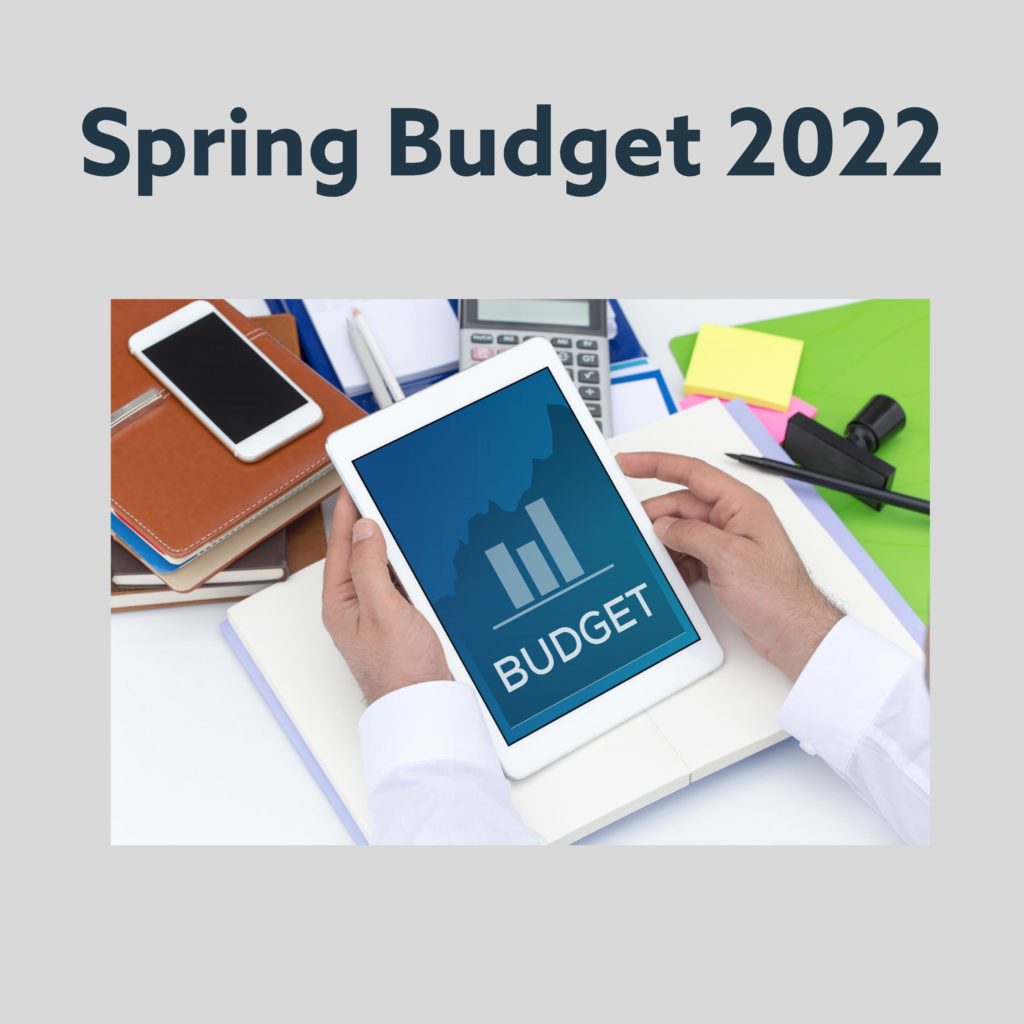

Here’s a little round-up of what came out of the Spring Budget 2022.
Cutting fuel duty on petrol and diesel by 5p per litre for 12 months
 This is the largest cut across all fuel duty rates ever and it came into effect from 6pm on 23rd March 2022. This cut, plus the freeze in 2022-2023 represents a £5 billion saving over the next 12 months. To the average van driver that’s worth around £200. For the average haulier, it’s worth around £1,500.
This is the largest cut across all fuel duty rates ever and it came into effect from 6pm on 23rd March 2022. This cut, plus the freeze in 2022-2023 represents a £5 billion saving over the next 12 months. To the average van driver that’s worth around £200. For the average haulier, it’s worth around £1,500.
Increasing the Employment Allowance from £4,000 to £5,000
Employment Allowance is a relief that allows eligible businesses to reduce their employer National Insurance Contributions (NICs) bills each year. When the spring statement was announced this would be rising by £1,000 from £4,000.
Around 495,000 businesses will benefit from this increase. This includes around 50,000 businesses which will be taken out of paying NICs and Health and Social Care Levy entirely.
This means that from April, 670,000 businesses will not pay NICs and the Health and Social Care Levy due to the Employment Allowance.
Increasing the National Insurance Primary Threshold
The Spring Budget 2022 statement announced an increase in the National Insurance Primary Threshold from £9,880 to £12,570 from July 2022. This is now in alignment with the income tax personal allowance. This is a tax cut of over £6 billion and worth over £330 for a typical employee in the year from July. This change will take 2.2 million people out of paying Class 1 and Class 4 NICs and Health and Social Care Levy. It aligns the starting thresholds for income tax and NICs, making the taxation of income fairer. These thresholds will remain aligned.
Exemption on Business Rates for Green Technology
Making green technology, including solar panels and heat pumps, exempt from business rates from April 2022. This will save businesses an extra £35 million in 2022-23. It’s expected to be worth around £170m over the next 5 years to support the decarbonisation of buildings.
A 100% relief for eligible low carbon heat networks which have their own rates bill will also be available. This is on top of reducing the VAT on energy savings materials (ESM) from 5% to 0%. Further incentivising homeowners to buy ESMs from businesses as part of a wider package of Government measures targeted at improving energy efficiency.
These announcements boost the existing business support package, which includes:
 From April, as announced in the Autumn Budget 2021, eligible businesses will now be able to receive a temporary business rates relief worth almost £1.7 billion. Freezing business rates multiplier for another year saving businesses £4.6 billion over the next 5 years.
From April, as announced in the Autumn Budget 2021, eligible businesses will now be able to receive a temporary business rates relief worth almost £1.7 billion. Freezing business rates multiplier for another year saving businesses £4.6 billion over the next 5 years.
Introducing the Annual Investment Allowance to £1 million. The highest level of support for capital expenditure ever provided through the AIA. A generous incentive to invest for over a million SMEs, providing full expensing for SMEs.
Extending the transitional relief for business rates and supporting small business schemes for 2022-23. This will restrict bill increases from between 15% to 25% for SMEs. The extensions of these schemes are estimated to save businesses £30 million, protecting small businesses from significant bill increases before the 2023 revaluation.
Establishing Help to Grow, is giving SMEs the tools they need to innovate, grow and help drive our economic recovery. As a result, 90% of survey respondents have made changes or are planning to make changes to the way they manage, organise or operate their business.
If you are concerned or need further help/advice about how the points in the Spring Budget 2022 may affect you and your business give us a call/email.
For further information on the budget head to the gov.UK website.
